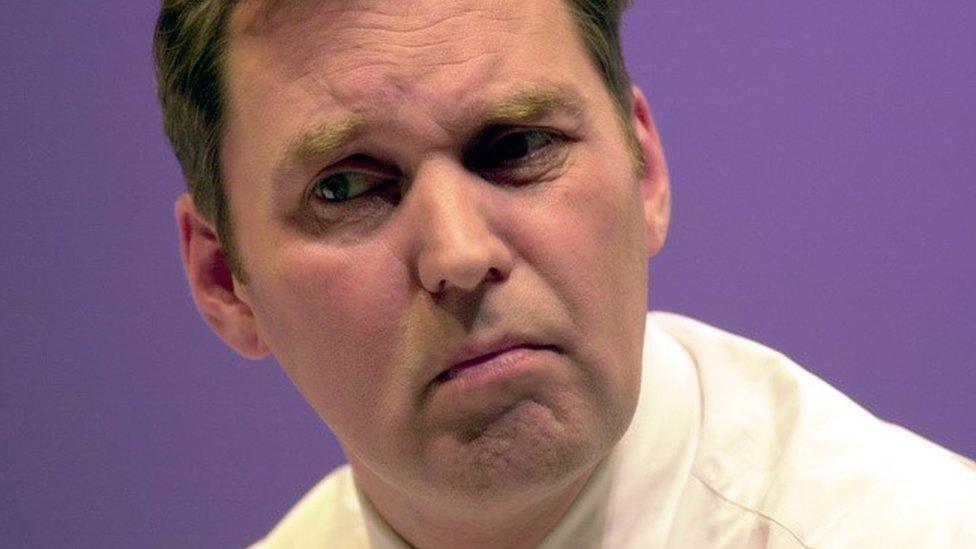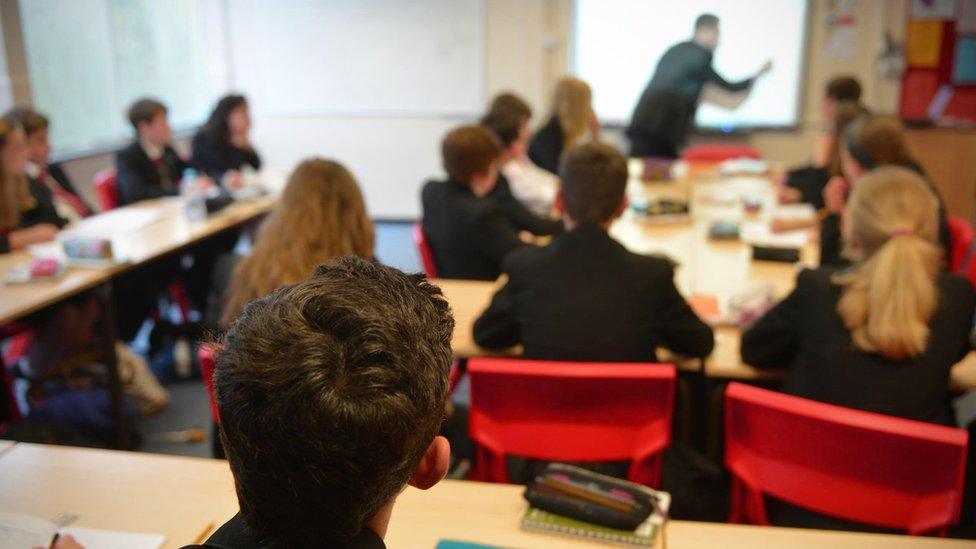Education policy 'key to social mobility drive'
- Published

Mr Milburn says the educational gap between poorer and better-off children must closed
Ministers must put education policy at the centre of the drive to deliver social mobility, the Social Mobility Commission chairman has said.
Alan Milburn said an education system in England that left many lacking the skills they needed in the modern labour market must not be tolerated.
He called for a new target that by 2020 at least half of children from poor homes should achieve five good GCSEs.
Ministers say they want every child to reach their full potential.
Speaking at Teach First's Impact Conference, external, Mr Milburn also suggested:
scrapping tuition fees for teacher training and housing support for existing teachers who worked in the worst schools in disadvantaged areas
the lowest performing 20% of schools were given intensive support or had wholesale change in leadership if they continued to fail
introducing a new school performance measure in 2018 to track pupil's destinations into work or continued education
Mr Milburn said at current rates of progress, it would take at least 30 years for the educational attainment gap in schools between poorer and better-off children to halve.
And it would take more than 50 years before the gap in access to university was closed.
He told the conference: "The truth about our country is that over decades Britain has become wealthier but we have struggled to become fairer.
"The introduction of the pupil premium and other reforms are positive steps in the right direction.
"However, efforts to narrow the attainment gap within schools are not being given equal priority to the focus there has been in recent decades on raising the bar of improving all schools. They have to be doing both.
"We should no longer tolerate an education system that produces a cohort of youngsters who simply lack the skills to compete in the modern labour market.
"It will be impossible to make progress in improving social mobility until the educational attainment gap between less well-off and better-off children is closed.
"Our future success in a globally competitive economy relies on using all of our country's talent not just some of it."
Brett Wigdortz, founder and chief executive of Teach First, said: "Educational inequality is a slow burning injustice that goes unnoticed, but threatens the very fabric and foundations of a fair society.
"The fact that a child from a poorer background is less likely to succeed at school and life is totally at odds with a British sense of fair play.
"Following Brexit, it's clear we need to invest in education, the communities and young people that have been left behind if we are to build a better Britain."
A spokesman for the Department for Education said: "This government is focused on making Britain a country that works for everyone.
"We are determined that every child, regardless of background, gender or ability, has an equal opportunity to reach their full potential.
"The pupil premium, now worth £2.5bn a year, is being spent to improve the education provided to children from the poorest backgrounds."
- Published30 June 2016
